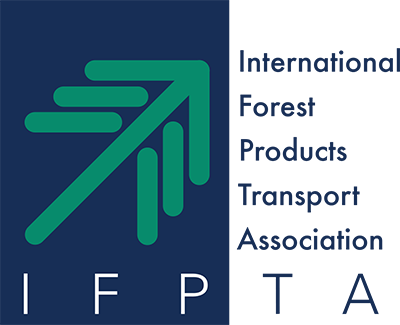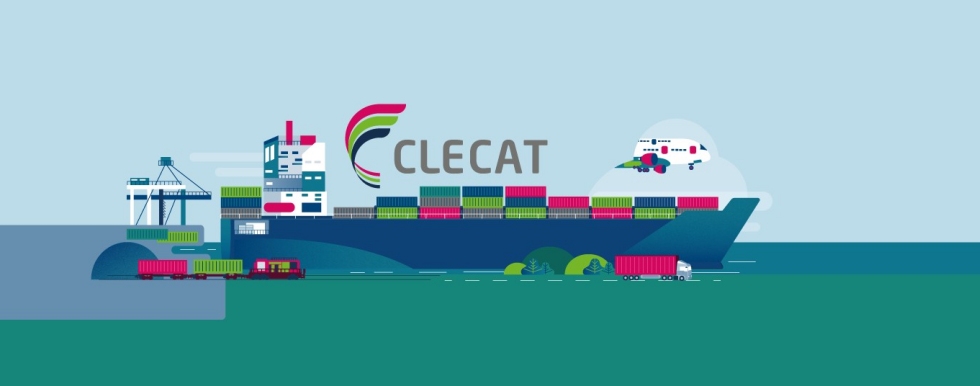|
CLECAT Calls for an Ambitious ‘Fit-for-55' PackageMay 7, 2021 - European freight forwarders welcomed the Sustainable and Smart Mobility Strategy last December, directed towards zero-emission road transport in Europe, whilst calling for a clear and concrete roadmap for a complete infrastructure roll-out, favouring the most cost- and resource-efficient solutions, also recognising the bridging technologies. With this in mind, CLECAT, representing European freight forwarders using all possible modes of transport, also looks forward to the 'Fit-for-55 Package.’ The '55' is referring to the 55% net emissions reduction target for 2030 that EU leaders signed off last year. The Commission will pursue a comprehensive set of transport pricing measures to encourage a switch towards greener options, such as emission trading, infrastructure charges, energy- and vehicle taxes. By 2030, the Commission also wants airplanes and ships to start using alternative fuels. CLECAT supports the switch to sustainable alternative fuels for these ‘hard to abate’ transport modes. However, so far, the Strategy falls short of clearly showing the path to achieve 90% greenhouse gas emission reduction in the transport sector by 2050 compared to 1990, to be in line with climate neutrality. CLECAT has issued a paper, consolidating the comments made in response to the various public consultations on the scheduled proposals, in order to provide a comprehensive overview of European freight forwarders and logistics service providers’ positions. CLECAT outlines its recommendations to ensure the upcoming legislation is fit for the future. In doing so, we urge the European Commission to: Revise the Alternative Fuel Infrastructure Directive (AFID) and set binding national targets for the alternative fuels infrastructure development in different freight transport modes. The infrastructure that freight forwarders use must have a cross-border coverage. Turning the legislation into a Regulation would certainly support further harmonisation amongst Member States. Revise the EU Emissions Trading System (ETS) to address emission reductions in the transport sector through market-based measures. CLECAT believes that the initiative to develop a carbon pricing scheme for the maritime sector could be a driver of progress at the IMO, as it has been demonstrated in the past. EU ETS revenues generated from the auctioning of maritime transport emissions allowances should be ringfenced; they could be used to support research and development of low-carbon and zero-emissions mobility technologies and innovative shipping solutions. A part of revenues generated could also be used for climate change adaptation and carbon offsetting projects, in view of reducing the transport and logistics sector’s impact on climate. For aviation, the EU needs to put in place a coherent and long-term framework to secure innovative aviation technologies, operational (ATM) improvements, and the production and use of sustainable aviation fuels (SAFs). CLECAT has particularly welcomed the “ReFuelEU Aviation” initiative to increase the production, deployment, and supply of affordable, high-quality alternative sustainable fuels in Europe. Enhance and expand measures under the Renewable Energy Directive (RED) II review to secure a larger uptake of renewable energy in the transport and logistics sector across the EU. CLECAT maintains that a more ambitious target for renewable energy could help mainstream renewable and low-carbon fuels and speed up their commercial deployment in all transport modes. Finally, there is a reference within the Sustainable and Smart Mobility Strategy to a European framework to measure transport and logistics emissions. CLECAT holds that such a framework should be based on the upcoming global ISO standard (14083) for the quantification and reporting of GHG emissions of transport and logistics operations, respecting the full-cycle ‘well-to-wheel’ approach. Finally, regulatory incentives are needed to accelerate the market uptake of greener and more sustainable solutions in transport and logistics, especially funding mechanisms for SMEs. Currently, the 'Fit for 55' package is expected in July 2021. CLECAT represents the interests of more than 19.000 companies employing in excess of 1.000.000 staff in logistics, freight forwarding and customs services. Multinational, medium and small freight forwarders and Customs agents are all within its membership, making the organisation the most representative of its kind. SOURCE: CLECAT (European Association for Forwarding, Transport, Logistics and Customs Services) |

